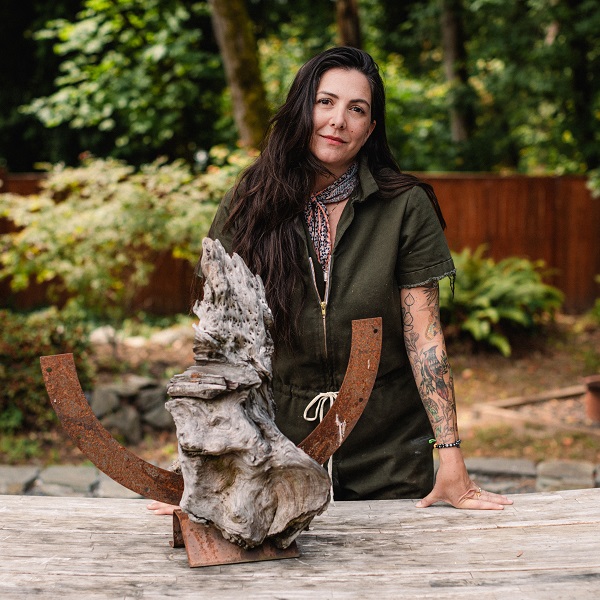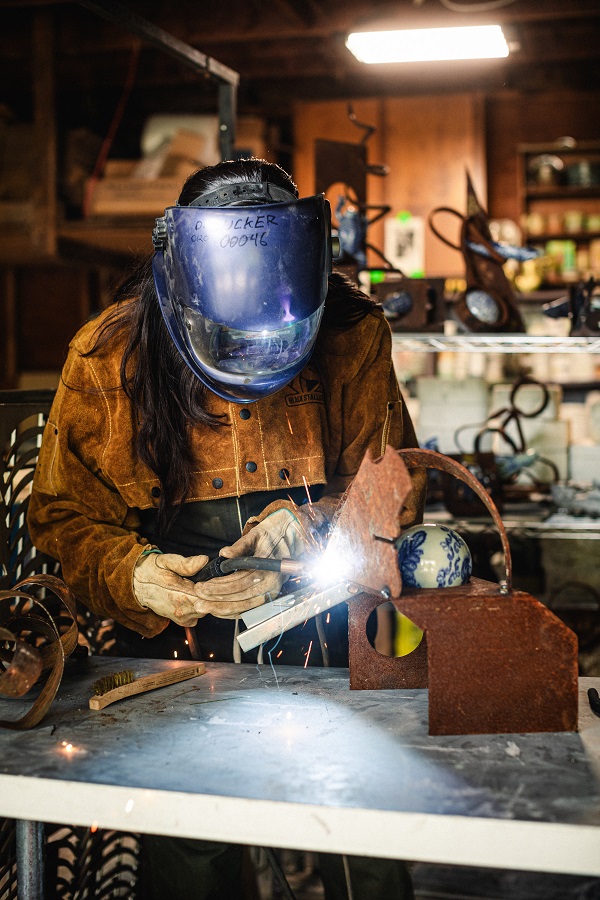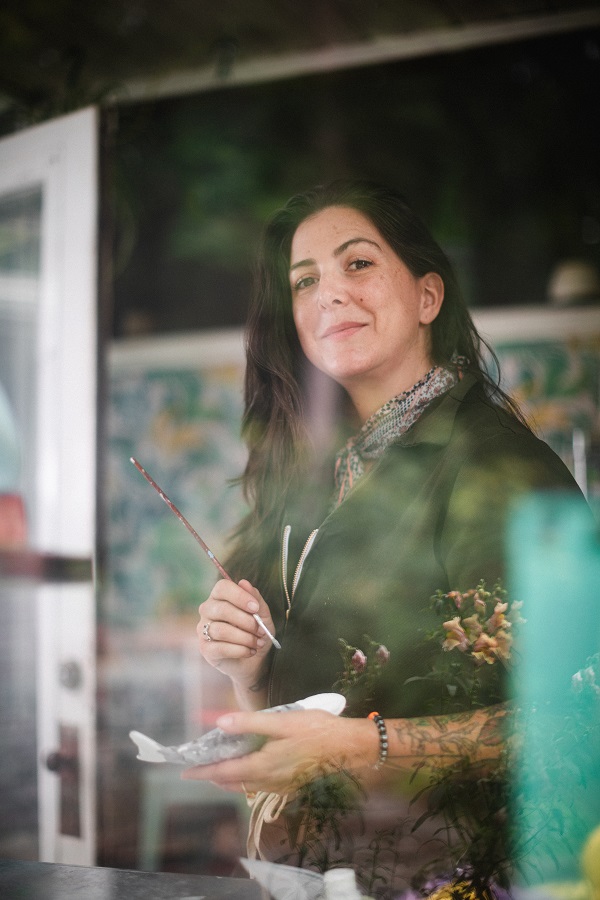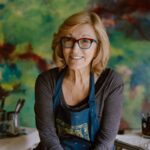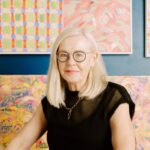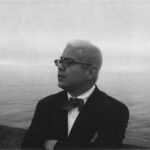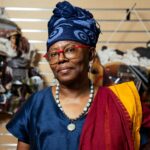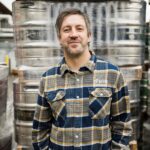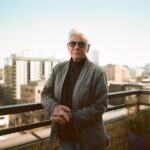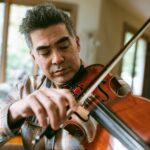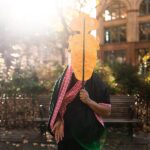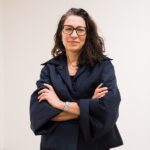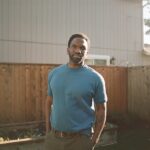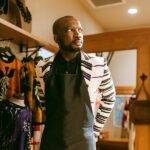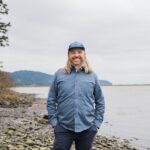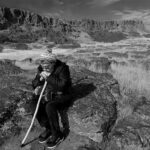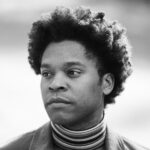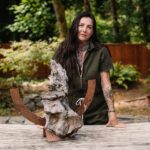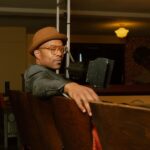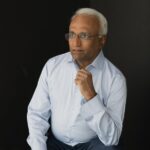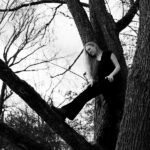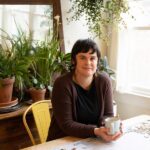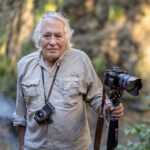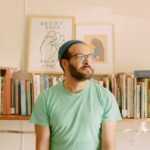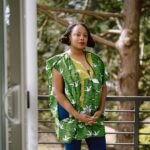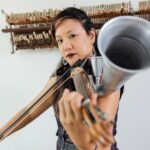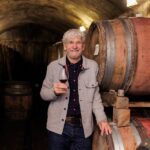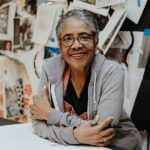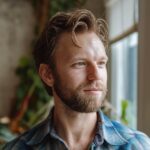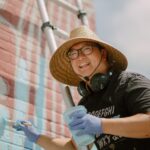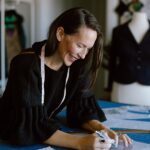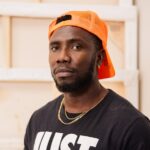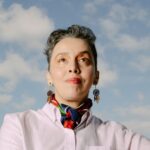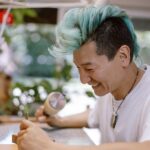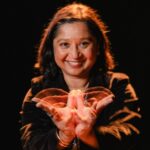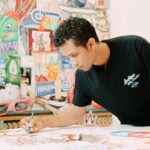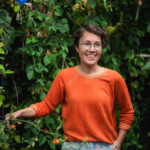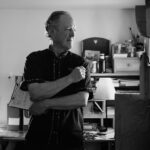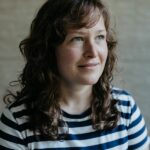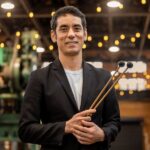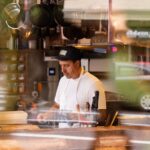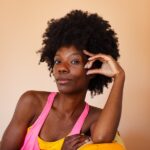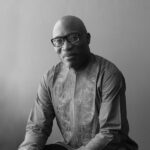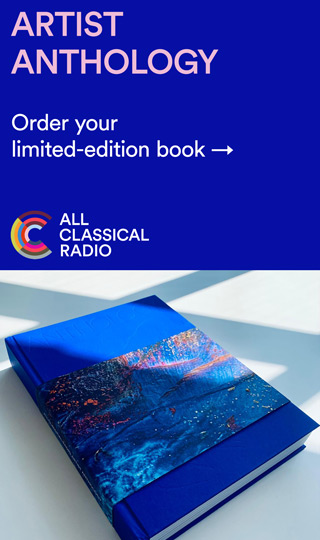THE ALCHEMIST
Written by Mamie Stevenson Morago; Photographed by Jason Quigley
In the universe according to Hana Rucker, boredom is the perfect catalyst for creativity. “If my kids come up to me to tell me they’re bored,” she begins, “I tell them, ‘How amazing! What do you think will come of it?’”
Unlike today’s youth, this welder-sculptor-ceramicist was not afforded the distraction of a television, the stimulation of a smartphone, or even the company of a consistent friend throughout her childhood. Born in California’s Bay Area, Rucker (née Kaufman) was raised by self-proclaimed “hippies in hiding”—a couple appearing as conventional yuppies who were anything but. When she was eight, Rucker’s family sold their belongings and packed everything into a trailer hitched to a van, where they lived for the next two years as they roamed the United States. “We kind of just traveled with the weather,” she says. “Nowhere to be, nothing to do.”
Rucker was expected to rely on her own drive and imagination as a means for entertainment. It makes sense, then, that so much of her artistic inspiration later in life would come from found objects and scrap materials. Ingenuity is at the heart of her work and worldview, begging the question, What can be made from this?
For Rucker, early teachers came in the form of local experts, landmarks, and her bright, whimsical mother, Annie. History lessons were implicit in the national parks and monuments the family visited; run-ins with wild animals—a pack of bear cubs, once—provided real-world applications of survival skills and knowledge of the animal kingdom; and answers to questions were readily available inside Annie’s extensive collection of encyclopedias. In fact, when Rucker’s father, Greg, was investigating a problem with the van’s brakes, he discovered that his wife, unwilling to part with her beloved books, had hidden away hundreds upon hundreds of pounds of encyclopedias in the trailer’s secret compartments.
Creating was a way to pass time on the road. Whether playwriting, dancing, or constructing mystical woodland dioramas alongside her mother, Rucker learned from a young age how to alchemize the ordinary into something new and unexpected. This not only helped her find outlets for creative expression, but also taught her the value of reinvention as her family moved from one community to another. “My mom’s…eccentricities,” Rucker pauses, smirking as she chooses her words, “offered me a lot of power. ‘You can be whoever you want,’ she told me. ‘You can totally reinvent yourself; you can tell everyone you’re from the circus—no one’s gonna know.’”
From this perspective, Rucker’s work, like her creative identity, has always been shapeshifting, building on itself. She constantly experiments with new mediums, materials, and concepts, from designing t-shirts to throwing clay to torching metal. “I literally will do everything, and ideally more than one thing at a time,” Rucker says. “I want to be spinning plates.”
Spinning plates has more than one application inside the Rucker home, tucked away deep in Portland’s Milwaukie suburb. In addition to housing the artist’s ceramics workspace, where she creates the modern, Pollack-esque kitchen wares behind Whip Ceramics, the Ruckers’ midcentury ranch-style abode is also a laboratory of sorts for one of Portland’s most renowned chefs, Hana’s husband and “biggest hype-man,” Gabriel Rucker of Le Pigeon.
The two met in 2003 while working at the now-closed Gotham Tavern, where other legendary local chefs like Beast’s Naomi Pomeroy and Bunk’s Tommy Habetz also started out. A far cry from the brown rice, bagged salad, and bland chicken of her youth, Rucker discovered uncharted realms of creativity through Gabriel’s culinary explorations. “Everything was new to me; it was like Through the Looking Glass,” the artist says. “This whole world of food existed.”
Despite learning the fundamentals of cooking from her husband, Rucker resists exactitude, declaring, “The way I cook is the way I make art. I absolutely refuse to follow a recipe.”
This philosophy has made Rucker’s artistic trajectory unconventional. For example, when studying the fundamentals of ceramics under the mentorship of vitrifiedstudio’s Shelley Martin, Rucker learned the wheel but felt restricted by the “rules” of pottery.

